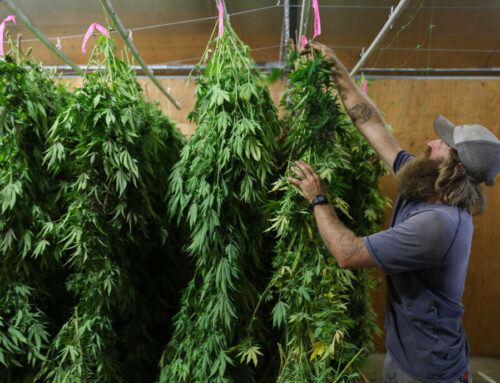Australian Nurses Call for Medicinal Cannabis Education in Undergraduate Degrees
The group wants education about the endocannabinoid system included in undergraduate nursing degrees.
Seven years ago, the Federal Parliament passed legislation to legalise medicinal cannabis in Australia. Since then, most cannabis medications have been classified as unapproved therapies, which means permission is required from the Commonwealth Therapeutic Goods Administration (TGA) before a prescription is issued.
However, the number of prescriptions for medicinal cannabis has skyrocketed from just a handful in 2016 to well over 100,000 last year. This surge in demand has exposed the lack of education and training for healthcare professionals in the use of medicinal cannabis, particularly nurses.
This week, the Australian Cannabis Nurses Association (ACNA) launched with a mission to provide education and support to nurses in the field of medicinal cannabis. The ACNA aims to fill the gap in training and education in this area, which it believes is a crucial factor in enabling safe and effective use of medicinal cannabis.
Ms O’Brien, one of the founders of the ACNA, first became interested in medicinal cannabis after an accident in 2019 left her with a “really nasty break” in her leg. During her months off work and in rehab, she researched whether medicinal cannabis could help manage her pain. She found that it was “just amazing for my pain” and decided to start prescribing it as well because it is a “really valid option for people who have chronic pain.”
The ACNA intends to offer medicinal cannabis training for nurses at all levels, including peer support and advocacy for better patient access. Ms O’Brien emphasized that many patients are still being denied access to this safe medication because their health providers lack the knowledge and awareness of its benefits.
The ABC contacted the Australian Nursing and Midwifery Federation, the Royal Australian College of General Practitioners (RACGP), and the Australian Medical Association (AMA) for comment on the ACNA’s launch. However, none of these organizations were able to respond before the deadline.
The AMA has consistently advocated for caution regarding medicinal cannabis, stating that “though there is a growing body of evidence regarding the therapeutic use of cannabinoids, it is still experimental.” The AMA’s position statement calls for clinical trials to be conducted, and medicinal cannabis should only be made available after existing treatments have failed and deemed safe and effective.
Similarly, the RACGP has also called for “further high-quality research into the safety and effectiveness of medicinal cannabis products” and highlighted the limited and inconclusive evidence currently available. However, the RACGP statement acknowledges the possible role for medicinal cannabis products in some areas and that patients should be able to access appropriate medicinal cannabis products if conventional treatments have failed.
Co-founding director of United In Compassion and the Australian Medicinal Cannabis Association (AMCA), Lucy Haslam, called the formation of the ACNA “exciting.” Mrs. Haslam said the lack of awareness around medicinal cannabis often saw patients discriminated against, such as losing their jobs due to outdated drug testing or being unable to access legally prescribed and supplied products in healthcare facilities.
The ACNA’s launch coincides with the inaugural Medicinal Cannabis Awareness Week, run by the AMCA. The event aims to raise awareness and educate the community about medicinal cannabis. Mrs. Haslam first started campaigning to legalise medicinal cannabis in 2014 with her son Dan, who relied on the drug after being diagnosed with terminal bowel cancer. February 24 marks eight years since Dan’s death and seven years since medicinal cannabis was legalised in Australia.
Mrs. Haslam hopes that Medicinal Cannabis Awareness Week will be formally recognised by the Federal Parliament in the future to focus on some of the issues and continue to improve access and understanding of this safe and effective medication for patients.



































